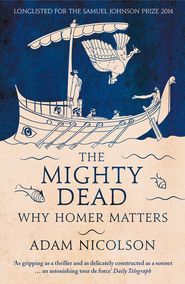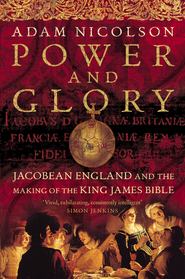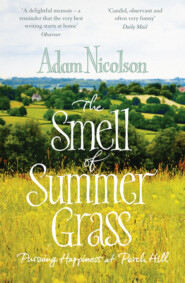По всем вопросам обращайтесь на: info@litportal.ru
(©) 2003-2024.
✖
The Gentry: Stories of the English
Автор
Год написания книги
2019
Настройки чтения
Размер шрифта
Высота строк
Поля
The Gentry: Stories of the English
Adam Nicolson
Prize-winning author Adam Nicolson tells the story he was born to write – the real story of England. It is the gentry that has made England what it was and, to a degree, still is. In this vivid, lively book, history has never been more readable.We may well be ‘a nation of shopkeepers’, but for generations England was a country dominated by its middling families, rooted on their land, in their locality, with a healthy interest in turning a profit from their property and a deep distrust of the centralised state. The virtues we may all believe to be part of the English culture – honesty, affability, courtesy, liberality – each of these has their source in gentry life cultivated over five hundred years. These folk were the backbone of England.Adam Nicolson’s riveting book concentrates on fourteen families with a time-span from 1400 to the present day. From the medieval gung-ho of the Plumpton family to the high-seas adventures of the Lascelles in the 18th-century, to more modern examples, the book provides a chronological picture of the English, seen through these intimate, passionate, powerful stories of family saga. The families have been selected from all over the country and range from the famous to the unknown. Some families are divided by politics , such as the one who took different sides in the Reformation; others destroy their inheritance through reckless gambling or investments . All of them are vivid depictions of the life and code of the gentry, and have left deep archives of family papers which the author has been able to use, often for the very first time.THE GENTRY is first and foremost a wonderful sweep of English history. It presents a convincing argument on what has created the distinctive English character but with the sheer readability of an epic novel.
Adam Nicolson
The Gentry
Stories of the English
For my daughters
Contents
Cover (#ulink_896a7309-a751-544f-b4aa-44d216436714)
Title Page
Dedication
Map
Introduction: Ungentle Gentles
Part I: The Inherited World 1410–1520
1410s–1520s
Survival
The Plumptons, Plumpton, Yorkshire
Part II: In the Renaissance State 1520–1610
1520s–1580s
Discretion
The Throckmortons, Coughton, Warwickshire
1580s–1610s
Control
The Thynnes, Oxford, Beaconsfield, Wiltshire, Shropshire and London
Part III: The Great Century 1610–1710
1610s–1650s
Steadiness
The Oglanders, Nunwell, Isle of Wight
1630s–1660s
Withdrawal
The Oxindens, Denton, Kent
1660s–1710s
Honour
The le Neves, Great Witchingham, Norfolk
Part IV: Atlantic Domains 1710–1790
1710s–1750s
Dominance
The Lascelles, Yorkshire, Barbados, Richmond and London
1730s–1790s
Courage
The Pinckneys, Wappoo and Charleston, South Carolina, and Richmond, Surrey
Part V: The Failing Vision 1790–1910
1790s–1840s
Fecklessness
The Capels, London, Brussels and Lausanne
1780s–1910s
Fantasy
The Hugheses, Kinmel, Denbighshire and Grosvenor Square, London
Part VI: The After-Life 1910–2010
1890s–1950s
Renunciation
Adam Nicolson
Prize-winning author Adam Nicolson tells the story he was born to write – the real story of England. It is the gentry that has made England what it was and, to a degree, still is. In this vivid, lively book, history has never been more readable.We may well be ‘a nation of shopkeepers’, but for generations England was a country dominated by its middling families, rooted on their land, in their locality, with a healthy interest in turning a profit from their property and a deep distrust of the centralised state. The virtues we may all believe to be part of the English culture – honesty, affability, courtesy, liberality – each of these has their source in gentry life cultivated over five hundred years. These folk were the backbone of England.Adam Nicolson’s riveting book concentrates on fourteen families with a time-span from 1400 to the present day. From the medieval gung-ho of the Plumpton family to the high-seas adventures of the Lascelles in the 18th-century, to more modern examples, the book provides a chronological picture of the English, seen through these intimate, passionate, powerful stories of family saga. The families have been selected from all over the country and range from the famous to the unknown. Some families are divided by politics , such as the one who took different sides in the Reformation; others destroy their inheritance through reckless gambling or investments . All of them are vivid depictions of the life and code of the gentry, and have left deep archives of family papers which the author has been able to use, often for the very first time.THE GENTRY is first and foremost a wonderful sweep of English history. It presents a convincing argument on what has created the distinctive English character but with the sheer readability of an epic novel.
Adam Nicolson
The Gentry
Stories of the English
For my daughters
Contents
Cover (#ulink_896a7309-a751-544f-b4aa-44d216436714)
Title Page
Dedication
Map
Introduction: Ungentle Gentles
Part I: The Inherited World 1410–1520
1410s–1520s
Survival
The Plumptons, Plumpton, Yorkshire
Part II: In the Renaissance State 1520–1610
1520s–1580s
Discretion
The Throckmortons, Coughton, Warwickshire
1580s–1610s
Control
The Thynnes, Oxford, Beaconsfield, Wiltshire, Shropshire and London
Part III: The Great Century 1610–1710
1610s–1650s
Steadiness
The Oglanders, Nunwell, Isle of Wight
1630s–1660s
Withdrawal
The Oxindens, Denton, Kent
1660s–1710s
Honour
The le Neves, Great Witchingham, Norfolk
Part IV: Atlantic Domains 1710–1790
1710s–1750s
Dominance
The Lascelles, Yorkshire, Barbados, Richmond and London
1730s–1790s
Courage
The Pinckneys, Wappoo and Charleston, South Carolina, and Richmond, Surrey
Part V: The Failing Vision 1790–1910
1790s–1840s
Fecklessness
The Capels, London, Brussels and Lausanne
1780s–1910s
Fantasy
The Hugheses, Kinmel, Denbighshire and Grosvenor Square, London
Part VI: The After-Life 1910–2010
1890s–1950s
Renunciation
Другие электронные книги автора Adam Nicolson
Sea Room




 0
0











